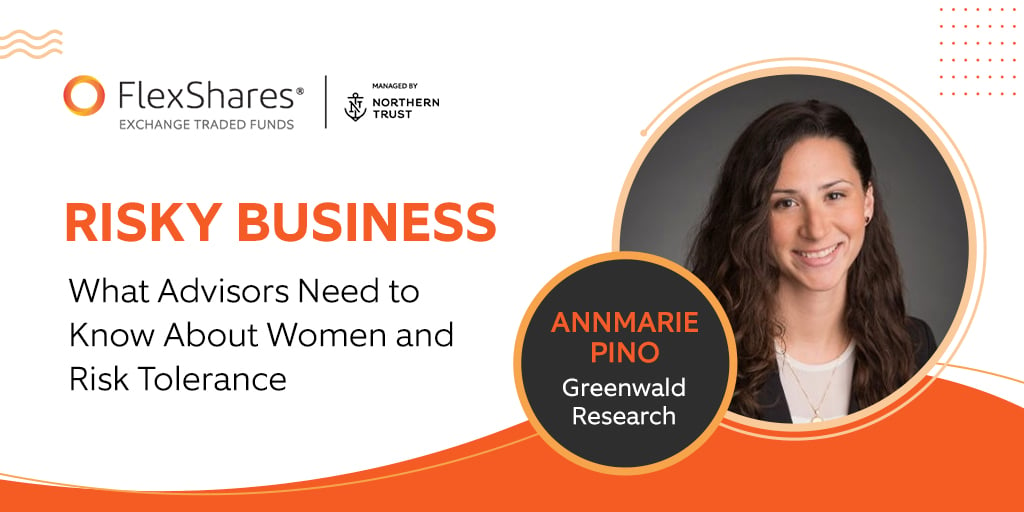AnnMarie Pino joins FlexShares' Special Guest blog series to provide unique insights on the topic of women and investing.
She is responsible for the design and execution of research and thought leadership within the financial services and retirement industries at Greenwald Research. With a focus on research with financial professionals, plan sponsors, and key consumer demographics, AnnMarie works with clients to better understand retirement savings and income, investment products, advisor practice management, and employer-sponsored retirement plans.
AnnMarie recently joined us on The Flexible Advisor podcast to talk about how her research revealed that women—as they acquire wealth—break many of the stereotypes assigned to them as investors by the advisory industry.
One of the most tried and true methods of building a successful advisory firm is to refine a target market or niche. Some financial professionals focus their clientele based on specific professionals such as dentists, others look for local entrepreneurs or parents of children with special needs. But one category that is solidly not a niche is women.
While it seems that this message is starting to resonate, more must be done to break away from the common stereotypes that paint women as one homogeneous group. Many of these assumptions about women focus on the thought that they are afraid of taking investment risk and are less confident when it comes to their finances.
key takeaways
- Women are 51% of the U.S population. They are not a niche!
- Gender investment stereotypes fade as wealth increases
- Overlooked insights lay under the surface of our assumptions
These broad categorizations are far from the truth for all women. A study Greenwald Research conducted with Northern Trust dug into a few unique subsets of women to highlight some of these differences. Looking at women who were at the mass affluent asset levels and breadwinners, many of these “typical” gender assumptions failed to hold. For instance, almost all in this segment think they have been highly successful when it comes to investing for retirement and they rate themselves highly when it comes to investment knowledge in general.
Additionally, 9 in 10 breadwinner women also feel very confident they have invested in a way that reflects the risk they want to take. And contrary to one of the most embedded stereotypes, these women did have additional appetite for risk. While many women prefer conservative investments, they are just as likely to be willing to take the highest level of risks as men are. This is not just a fluke. Other research such as Greenwald’s Retiree Insights Study saw interest in an investment with bounded outcomes decrease as women’s asset level rose.
While many women prefer conservative investments, they are just as likely to be willing to take the highest level of risks as men are. This is not a fluke.
–AnnMarie Pino, Greenwald Research
While it is important to understand clients’ risk tolerance, it is also instructional to understand how clients determine their level of risk tolerance. Is your female client who you perceive to be risk averse really looking just to better understand “riskier” investments? Is your client hesitant to take on more risk or are they trying to choose the right type of higher risk investment for their portfolio? If they are avoiding the trendiest stocks, is this because long-term goals are the true priority?
Mass affluent breadwinners is just one example of the insights that can emerge when digging deeper. By looking deeper than broad groups such as gender, we see how diverse the needs of women are when it comes to what they want out of a relationship with their advisor. This is not to say we should ignore any insights that look solely at gender, but we should bear in mind that this is just the surface. Doing more segmentation beyond basic demographics will enable financial advisors and companies to better cater to different needs—which will not only help improve client satisfaction but also business development and retention.
